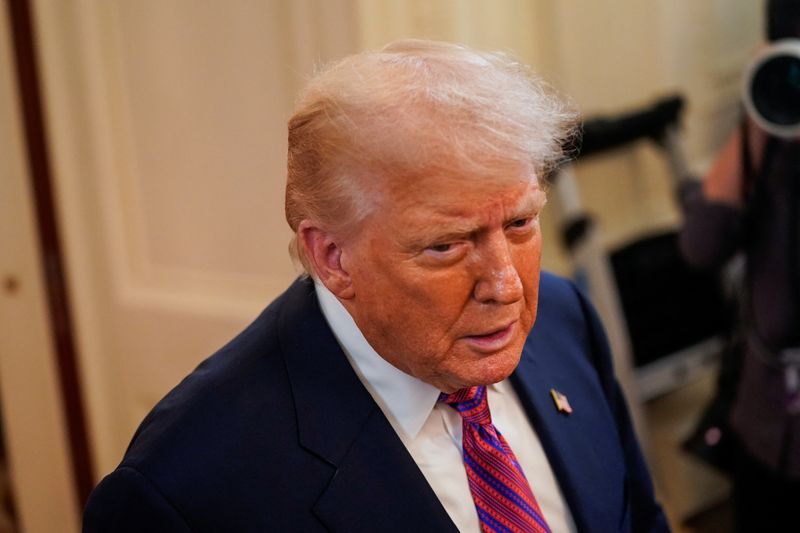Gold prices edge lower; heading for weekly losses ahead of U.S.-Russia talks
Investing.com-- U.S. President Donald Trump on Wednesday said his administration had completed a “massive deal” with Japan, which will see the Asian country subject to a 15% tariff on exports.
Trump said that Japan will invest $550 billion into the U.S., of which the U.S. will “receive 90% of the Profits.”
“Japan will open their Country to Trade including Cars and Trucks, Rice and certain other Agricultural Products, and other things. Japan will pay Reciprocal Tariffs to the United States of 15%,” Trump said in a social media post.
Announcement of the deal comes shortly after reports said Japan’s top trade negotiator, Ryosei Akazawa, met Trump in the White House on Tuesday.
While the 15% tariff is lower than the 25% initially outlined by Trump, it still goes against Tokyo’s earlier demands that Japan be exempt from all U.S. tariffs. The 15% levy is likely to take effect from August 1, when Trump’s other reciprocal tariffs against major economies are set to take effect.
Uncertainty over a Japan-U.S. trade deal had risen this week, especially after Prime Minister Shigeru Ishiba’s ruling Liberal Democratic Party suffered a bruising loss in upper house elections held over the weekend.
It was not immediately clear whether Trump’s 15% tariff on Japan will be compounded with his 25% levy on automobiles and 50% tariff on steel. Tariffs on the two sectors were a major point of contention for Tokyo, given that they are among the country’s largest exports to the United States.
Japanese automakers will face 15% tariffs on their U.S. exports, Japanese media outlet NHK reported.
While auto majors such as Toyota (NYSE:TM) and Honda (NYSE:HMC) do have production facilities in the U.S., they still export several models and auto parts to the country. U.S. import tariffs stand to increase the showroom prices of their vehicles. Shares of the two rose sharply in Tokyo trade on early-Wednesday.
Trump has signaled that he is seeking to bring more manufacturing back to the U.S. with his tariffs. But analysts, and the Federal Reserve, have cautioned that his tariffs could drive up inflation, given that they will be borne by domestic importers.
